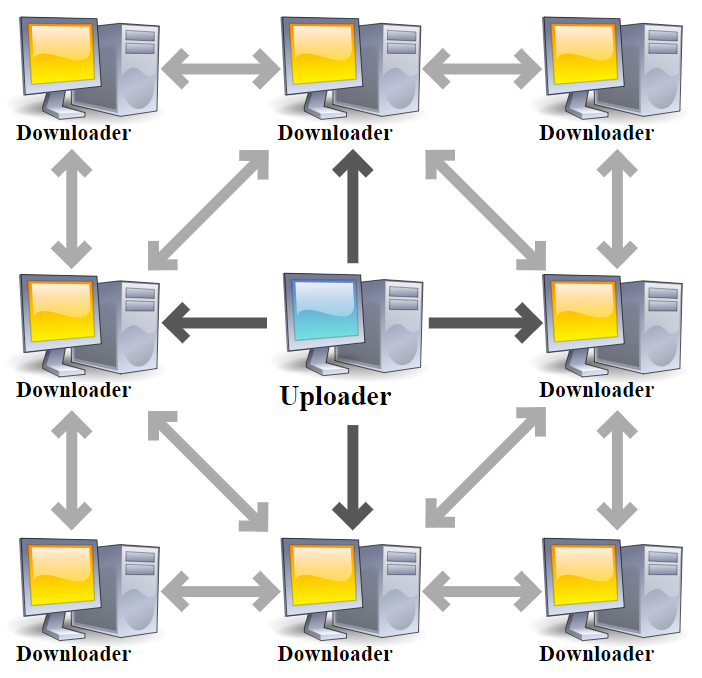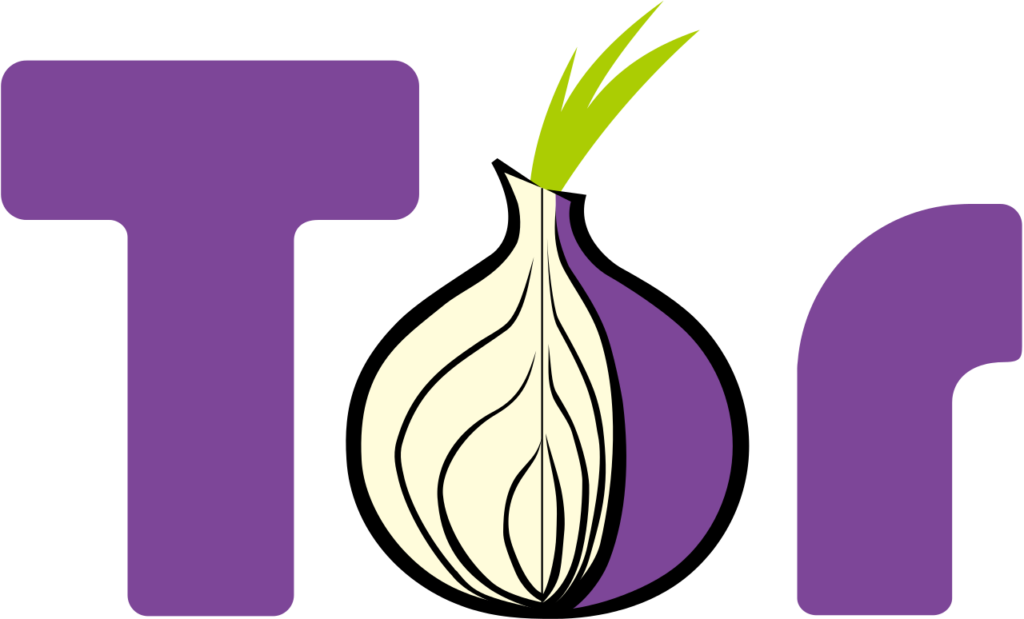How to keep the torrenting private and secure
Cloud is the buzz word, cloud torrenting the buzzphrase. This day and age there is a plethora of cloud torrent providers on the web (free and paid) that come and go like the clouds during a day. How to choose the best one and what features to look for? What are the legal connotations?
All of that and more about how to navigate in the sky oceans of (torrent) clouds. But, first and foremost, before we dig in (or actually dig up to the sky? 🙂 ) let us prepare ourselves, in the safety of harbour, by exploring the basics of this topic and defining the terms.
Filesharing evolution…

Just in case you are a complete novice to this, let us say briefly actually how epic and, at the same time, complex this whole thing is. The opportunity to share files (information) quickly and efficiently is one of the most significant benefits the internet has delivered to the evolution of man since it’s beginning. It defines our era and makes us connected, informed and aware humans. The internet is an essential part of our identity. To share and download is as to breathe and eat. We need it, and we love it. That needs to stay private, secure and lightning fast.
For many years, files were downloaded from the server to the PC directly, and after that transaction was completed, the connection was shut. This comes with obvious bandwidth limitations, central server maintenance issues and the file distribution mechanism can be controlled by the server owner.

Torrent is the next step in the game. BitTorrent is a peer-to-peer protocol, which means that the computers in a BitTorrent “swarm” (a group of computers downloading and uploading the same torrent) transfer data between each other without the need for a central server. It is a distributed network. So we advanced to a decentralised system substantially improving the options for download speeds and files availability (but all depending on the viability of torrent file, respectively the network of peers).
Finally, the cloud enters the gameplay. It’s merely a data centre available to many users over the internet that makes computer system resources, especially storage and computing power, available on demand. The cloud has made life simpler for lovers of music, eBooks, videos, etc. With the power of the cloud, you can save the space on your hard disk and bandwidth for more crucial files.
Now, let’s combine those two and we got cloud torrenting. But more about this later, because at first, we need to have a look at how this filesharing evolution is
…stirring privacy discussion
As we know, communication over the net can be tracked and profiled according to your IP address by ISPs, companies, sites, apps or legal organisations like governments or NSA and the torrent is often used to distribute copyrighted material. The torrent itself is not illegal, often big companies or universities use it for peer-to-peer distribution of large data, but a lot of the torrented files is pirated content. Remember, it is a tool, like cars or your kitchen knife. All depends on how or why we you them. It’s still your responsibility, and we should abide by our country’s laws.
Nevertheless, in many countries like USA, China, Russia, Malaysia or Australia have prohibited the use of torrents and the services providers (e.g. tracker websites like thepiratebay.org) have been blocked or shut down. However, in and of itself, torrent is a harmless tool, just a file transfer protocol, the content it is being used on, is the deal. So, we will now show you possible options in how to use it like a pro, what is more, with your privacy being taken care of.
All in all, your privacy is a right; however, these days on the web, this right is not granted at all. The users are encouraged to become more informed and active in this matter.
Disclaimer: We believe in a right to privacy, not piracy. We do not encourage or promote any downloading of copyrighted material via torrents or any means whatsoever. Please respect the property rights of others. Use torrents responsibly and also comply with your country’s laws.
Virtual Private Network (VPN)
The usual way to protect yourself is to connect to a VPN (Virtual Private Network), which does two basic things:
- allows users to change their IP address to any other IP address location 2. encrypts the data on the connection between you and the VPN service’s servers
- so that it hides all your activities from online detection, monitoring and tracking, hence keeping your downloading anonymous. There are many free as well as paid services with advanced features. But VPN is not omnipotent; actually, there is no 100% guaranteed privacy on the net, but we can come very close to it.

We can state a multitude of advantages for VPN service, for example: a secure connection, online presence is kept a secret, private access to geo-blocked sites, better online shopping deals and selection, high-speed bandwidth, avoidance of fake news and filter bubble, available option to open more than one account on the same website etc. You can select a country and a city you prefer. This is the one everyone else will see you appear to be. There are many more specific uses, but you can read about them in other articles on the web.
Nonetheless, there are many cons:
- it can cause a slow connection speed and worsen overall performance
- it can even drop (killswitch is partial solution to this)
- it’s sometimes difficult to configure.
- VPNs are also illegal in some countries. You might end up paying a huge fine or going to jail when you do that.
- And not to be paranoid, but the real option is there that the VPN service provider can monitor your activity and collect your data for the third-party sale.
- By default, the VPN is a premium private connection service that you need to pay extra, on top of your regular network connection or ISP. Also, if you want to use a VPN router, you have to purchase additional hardware to use it next to your VPN connection. Of course, there are many free VPNs, although they are generally not reliable and they have lots of limitations. So, another disadvantage of private connection is that it can be very costly for you in the long term.
- Not to mention, that the level of encryption strength varies with VPN service providers and often is simply weak.
Possibly, the worst thing with VPNs is software failures. If the program crashes for some reason, messages to and from your PC travel unencrypted and outside of the VPN network. This would leave them vulnerable to your ISP or anyone else who wanted to spy on them.
Tor
Tor is from German and means a gate. It is basically like the concept of onion, many VPNs stacked one on top of the other, each being called the node. It’s a downloadable freeware browser that hides your IP address while you are online. The big bang with Tor is that where VPNs provide privacy, Tor provides anonymity.

By its nature, a VPN company has access to information about you. You have to trust them and their logging policies to protect that information. When you use the Tor network, you don’t have to trust anyone. The design of Tor makes you virtually anonymous when you go online. While no system is 100 % foolproof, it would be remarkably difficult for anyone to identify you when you are using Tor.
But to be frank, it is the slowest and most painful choice available. If you are not calm enough, this is not the right option for you.
Pro tip: you can eliminate the risk of ISP knowing that you use VPN by first connecting to your VPN and then to Tor. The fact that you are accessing Tor will be hidden, and you will be shielded against traffic analysis.
Proxy Server

A proxy server is used to reroute browser around corporate or school content filters or against geo restrictions. This is a straightforward tool, with the proxy server acting as an intermediary, so the IP is not coming from your location but that of the proxy.
Still, it is one of the riskiest methods out there, while it may cause slowdowns of internet access. Again, this service is illegal in some parts of the world.
BitTorrent Client
When you became torrent downloader, you assuredly got to know the BitTorrent client. It has few security features, e.g. the option to encrypt the torrents that cloaks the type of traffic you are using from the ISP. Really, this one is not the most dependable way to keep you protected, but it’s an option worth the shot. To achieve more anonymity, you should combine it with a proxy server.
When you became torrent downloader, you assuredly got to know the BitTorrent client. It has few security features, e.g. the option to encrypt the torrents that cloaks the type of traffic you are using from the ISP. Really, this one is not the most dependable way to keep you protected, but it’s an option worth the shot. To achieve more anonymity, you should combine it with a proxy server.
Cloud torrent downloading
Finally, we are getting to the juiciest stuff. Lot of us presumably already use the cloud in one form or another, e.g. Google Drive. So why not use it for torrenting? Indeed, the future is the clouds 🙂
But to recap first, when you torrent at home, your IP is received by everyone in the torrent network. At last, that’s the principle of peer-to-peer sharing. As you know, it is good behaviour to seed the downloaded torrents, yet lazy connections and data restrictions can limit how much one can torrent. Last but not least, torrents aren’t supported by hardware from Apple or streaming devices like Chromecast or Roku.
So why not put all the heavy duty torrent thing on the lightness of a cloud? It offers the same benefits of VPN and proxy and way much more. Cloud torrenting is merely private, secure and lightning fast. Let us check the advantages:

- it saves your precious time, storage, bandwidth and energy, by being simple and easy
- it is a browser-based service, no need to download an app, meaning excellent accessibility
- all the downloading of the torrent file is secure because the encrypted cloud does it, not your PC, that’s why your IP and personal connection is not associated with the torrent so that no sneaky snoops can get the suspicion
- high performance dedicated servers with uplinks much faster than a home connection are the operational base of cloud services, so you get terrific download speeds
- Instant access to often-downloaded files is acquired rather than waiting for the download to complete. Who wants to wait, in this day and age of instant enjoyment, right?
- save the time by having to unblock torrent sites or search for alternative ones
- media is available across all of your devices, including the abovementioned hardware, smart-TVs, Xbox, PlayStation
- quality cloud torrent provide state-of-the-art feats like streaming the media without downloading and even streaming it while being downloaded, in HD quality or with subtitles
- keeping with the proper practice, the better cloud providers keep the pre-configured seed-leech ratio 1:1, so the seeding is done for you, no need to run your PC and pay the electricity bills; some even change that for you
- many companies provide the sync with other popular cloud-based services like Google Drive, Mega, Dropbox, so we can conveniently use cloud-to-cloud sync
- super-user-friendliness as simple as copy and paste or drag and drop
-torrent from anywhere and blow away the worries about setting up VPN or DNS leakage (protip: always remember, the more layers of security the better, so it helps to use a VPN upon downloading files directly to your hard disc) - other uber-features of pro cloud torrent providers are extra layers of protection via SSL secured channel, so no ISP can view what you are downloading; antivirus protection, payment in cryptocurrencies, FTP access, just a few more to mention
- servers are dedicated to torrenting alone, optimised for torrenting, evolving the torrenting by combining them with other useful functions and services; hence it’s like owning an ultratorrenting engine with maximum capabilities, while all you need is a device with internet access
Disadvantages of cloud torrenting
You thought the cloud torrents are the magic bullet? Well, almost. Despite many apparent pros, there are some unobvious cons:

- the price: if you want to have advanced feats and quality service, as with all things today, you have to pay. Of course, most providers offer free plans with limited possibilities to try things out.
- although online torrent downloading is fast, getting the saved files from the cloud to your computer or devices tends to be no faster than regular torrenting with a VPN. This means that cloud torrenting is usually best for those who are happy to stream movies and other content from the cloud.
- besides torrent downloading, a cloud torrenting client offers no added anonymity, security, and geo-spoofing benefits of a VPN.
- even when you check the “HD” option, which some cloud torrenting services allow, you gotta check the resolution of streamed content, because it might be limited. Put differently, there is normally no good downloading high-quality 1080p video if you plan only to stream it.
- take into account that cloud torrent services represent a relatively new field of business. We will see how dedicated will be to defending client’s privacy, esp. compared to VPN providers who have been here for a long time and many are reliable. For instance, most cloud torrenting services demand lots of personal information while signing up. The questions remain, do they keep logs of downloaded files for each user? Will any of this information be given to third parties, if asked for? If yes, under what conditions?
Pro tip: When registering, use a disposable email address and false personal info. If coupled with anonymous payment systems a reasonably high level of anonymity is to be achieved.
What to do next?
There are many options for cloud torrent downloaders. We have put the most popular clients under testing and composed a list of recommendations. We checked the quality of service, download speed, price plans, user-friendliness, design, stability, protection and extra features. Have a look at the results in the review section. It is essential to examine the options before making a choice. After you give them a try, let us know your experiences in the comments.
To sum up, online torrenting is not a child’s play. But it can be, when you learn how to use it responsibly. Of course, when you want the better goodies, you have to pay, but hey, the cloud providers also have a living to make. With all being said, from all the alternatives, cloud torrenting is the fastest and most secure way on the net right now and esp. when it is combined with other privacy tools it gives you THE most cutting edge in the world of torrenting.
